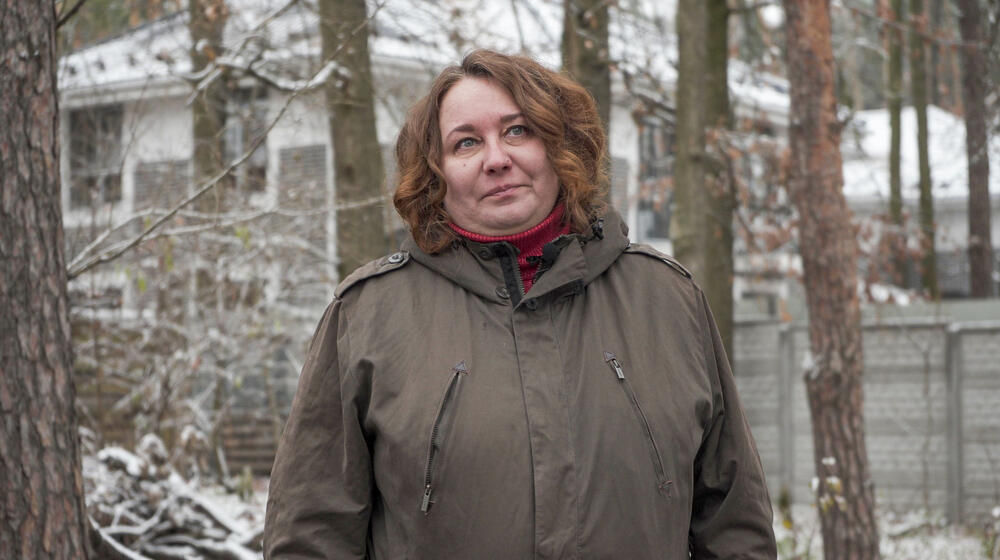For 36 days, while the city was controlled by the Russian army, Olesia, her husband and their three-year-old son hid in their home. During the occupation, their small yard was the only outdoor space available to them. They made tunnels in a fence in the yard so they could go to their neighbours.
There, in their small world, amid the shelling, they came to know what war is: a neighbour was killed in front of them, another was kidnapped and the streets were strewn with human remains.
Following their horrific experience, Olesia received social and psychological assistance from the United Nations Population Fund (UNFPA) and worked with a psychologist and a social worker to overcome the trauma of those days.
"Then, I cried for the first time since the beginning of the war," said Olesia. "We talked for three hours. When you keep it all inside yourself and then let it out, you feel relief."
Today, Olesia is teaching science to university students again and trying to rebuild her home after it was destroyed by shelling.
Olesia talked to UNFPA about her experience, how she managed to cope and how she is recovering.
"A lot of cars were shot up and children and women who were killed were left lying on the road."
I live in Bucha, literally a hundred metres from Irpin and a few kilometres from the airport in Gostomel, which has been under fire since the first day of the full-scale war.
On February 25, we saw Russian soldiers next to our house and their helicopters flew over us. We didn't know what was going on: whether it was their planes or ours. We knew from the news that the war had started, but we didn't understand anything else.
Almost immediately, near our house, we saw people in black uniforms withinscriptions on the back signifying there were from the Russian Special Rapid Response Squad. At that time, we did not know the types of military units, we thought that maybe it was our police. We went outside and asked, "Did something happen?" They answered in Russian, "No, everything is fine." Only later did we learn that it was a Russian rapid response unit.
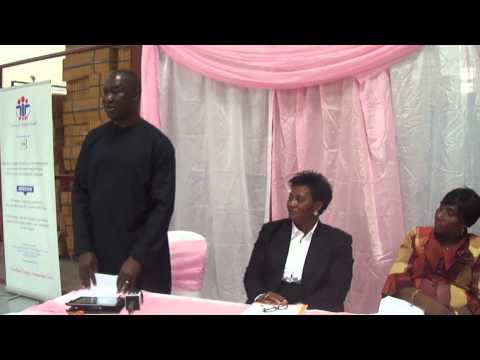
Two days later, Russian soldiers began shooting locals who tried to leave the city. My husband went to check if we could evacuate. "There are a lot of shot up cars and children and women who have been killed are lying on the road. We won't go, it's like a lottery, like Russian roulette: you either survive or you don't." We decided to stay in the city. And later, even if we wanted to leave, we would not be able to. The bridges to the city were blown up and we remained in Bucha as if we were on an island, cut off from the world.
From the first days of the war, we had no electricity, no heat, no gas and no communications as the telephone towers had been blown up. There was only constant: shelling. One day, next to us, at the intersection of Vokzalna and Yablunska streets, a fight began. During the fight, a shell hit our house. We were only saved by the fact that there were many trees around. When the roar of the explosions calmed down, we saw that all the trees had been cut down. They remained lying on the streets until the city returned to the control of the Government of Ukraine. Because of the mountains of trees, the Russians did not choose to shell Irpin from our street. They stopped at the neighbouring street. That decision saved as.
"We didn't even light candles, so the Russians wouldn't think someone was home"
We could not believe that we were under occupation. We hoped that the Ukrainian army would liberate the city. We heard that a battle was going on, and we were thinking, “Soon, our soldiers will be here. We just have to suffer a little longer and they will be here.”
We made a decision, if we can no longer evacuate, then we will simply hide so that they do not see us. During these 36 days, while the city was under the control of the Russians, we did not even light candles so that they would not think that someone was home.
Our house was the epicentre of the fighting, as it was in the middle of two fires. Everything around was on fire. The neighbour's roof was destroyed. There was fighting on the street. All this time we were, if not in the basement, then simply on the floor.
But you begin to adapt to everything, so we set about arranging our life to suit the conditions we were in. I got out all the stocks: beans, pickles, pasta and cereals. In addition, some neighbours dared to share their stocks of food to us. We began to think about how to cook it all. Neighbours shared the same approach. We took two bricks and put some iron on top and a pan on top of thatt. Cooking this way, there is almost no smoke because this structure is essentially on the ground. So, we remained inconspicuous.
There was at least some food, however water was a problem. We remembered that there was a bore-well one street away from our home. From time to time, we went there to get some water.
One day, my husband came running and said, "Our neighbour was just shot in front of me." He had gone to get water, and when he was returning home, he ran into a group of Russian soldiers. As he was wearing military-like clothes and had tattoos, they didn't like it. They checked him, put him up against the wall and shot him at close range. He left a small child who was only two months old at that time.
After it got dark, the neighbours ventured out to retrieve his body and bury it.
Since then, we did not go outside at all. We made loopholes in other neighbour’s fences so that we could visit each other. Looking for water was dangerous, so we put barrels under the roof to collect rainwater. Then, we boiled the rainwater several times and added a bay leaf to help disinfect it.
Our dog was constantly running in the yard outside. At some point, he brought a bone from a nearby playground. It was clear that this was not a part of some animal – it was a part of a human hand. In the evening, my husband went to see what was happening. The burnt bodies of several people were laid out in the middle of the playground. It was only later on that we found out from the police that these were the bodies of a family – a husband, wife, grandfather, grandmother and two children. They were our neighbours. They taught at the local school. They were killed and then burned. Their bodies laid under an oak tree until the end of the occupation.
"The military enters your house, and you lie on a three-year-old child so that he does not make a sound and you are not noticed"
Over time, we began to get used to the shelling. We learned to distinguish where they were shooting from and from what weapon, when to lie on the ground, and when to continue going about your business.
Then, the Russian military began to go to the houses. They entered every house, including our home. But, part of our house was unfinished, there were no walls, there was nothing and they thought that no one lived there and so they did not come inside. They put a mark on all houses like this - a painted circle filled in with yellow. It meant that no one was there, or no one lived in that house. A painted yellow circle that was not filled in meant that the house would have to be checked again.
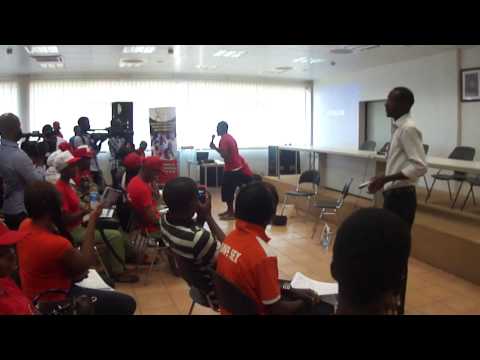
When they entered our house, they did not see us, but we saw them. I had a feeling, I wouldn't say it was fear, but rather helplessness. You lie on top of your three-year-old son. You tell him something in a whisper, some fairy tale, so that he does not make a single sound, so that we could remain hidden.
Then they went to our neighbours and started robbing them. They took everything away with them. They visited them three times in armoured personnel carriers. Like a Christmas tree, they came out "dressed up in the loot."
You see it all and can't do anything. You have no weapons, you have no defence and you can't run away. You can only sit quietly in a corner. Your main task is to survive.
"One night we woke up because of the silence. And that terrified me even more than the shots"
My son said, "Mum, when they finish shooting, there will be sunshine." And, when we first heard that silence, it was really sunny.
One night we woke up and realised that it was just quiet. It was a terrible silence. We wondered if they had moved to Borodianka to start razing us to the ground - the same way they attacked Irpin. And, that silence was even more terrifying than the shots.
For several more days, we were afraid to go outside. There was no information and you simply do not believe that everything was already over.
And then we dared to go out and we saw dozens of buses, hundreds of journalists and cameras everywhere. We saw them and thought, "We have definitely been liberated." We walked a lot with these journalists, and thanks to this, we began to learn what had happened in the neighbouring streets and in those houses that used to seem very close to us - but during the occupation - were so far away.
We heard that on such and such a street, people had been tortured, in such and such a house someone had been rape to death. They found the bodies of a family who were just sitting at a table, drinking tea, when the shooting started. They were found with broken cups next to them. We saw bodies with terrible torture wounds, which are hard to even imagine. People could only recognize their killed relatives by wedding rings and other objects, like jewellery. Our neighbour's wife was kidnapped. Her fate is still unknown. He is still trying to find her.
"I cried for the first time since the beginning of the war"
During the occupation, I did not allow myself to cry. You have to hold on, try to survive, and stay alive. And, I didn't want to show any weakness to my child.
The last two weeks before liberation were the most difficult psychologically. There was shelling every second. It seemed to me that they wanted to simply wipe Irpin off the face of the earth. It was like a concentration of their rage.
When they finally left, I still didn't believe it. I couldn't relax, I was constantly expecting that something would happen again. And then, psychologists from the UNFPA mobile team came to see me. And, finally, I felt that I could not keep my pain inside myself. They talked to me. Firstly, they asked, not what needed to be done, but "how am I?". Then, I cried for the first time since the beginning of the war. We talked for three hours.
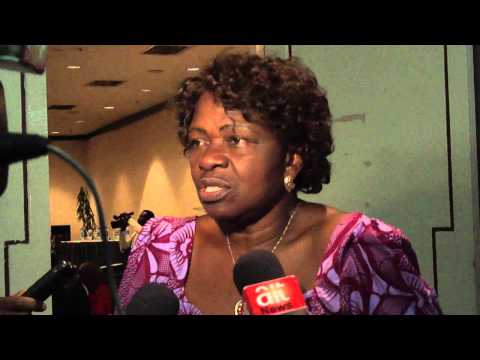
When you hold it all in and then let it out, you feel relief. It's like taking a nice warm bath with Champagne.
We still keep in touch when I feel the need to talk. In such situations, it is important to know that someone is there for you, that someone can give you advice.
This war changed everyone. After what I experienced, I became more intolerant of injustice. And we have all become more human. Neighbours with whom you might once have argued have become almost like relatives. We became united.
When you are under stress and you need help - you need to gather and be happy about the smallest things. There will always be those who will support you, help you to let go of the pain and live with this experience. Help is available, you just have to ask.
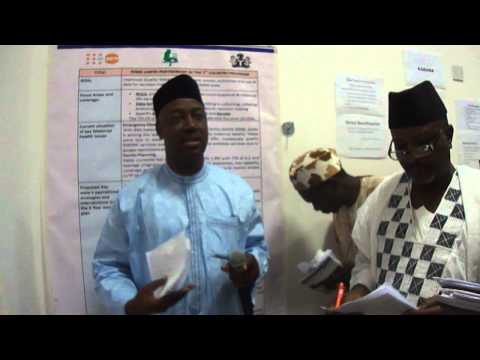
Mobile teams provide psychological and social assistance and, if necessary, assist survivors in finding legal or medical advice. These teams can also help relocate survivors of domestic violence or gender-based violence to a safe place.
These psychosocial mobile teams operate in Ukraine with the support of UNFPA, in coordination with the Office of the Vice Prime Minister for European and Euro-Atlantic Integration, the Ministry of Social Policy of Ukraine, and with the financial support of the governments of the United Kingdom, Canada, the United States, and the Humanitarian Fund for Ukraine (UHF).
The mobile brigade in the city of Bucha works with the support of the Humanitarian Fund for Ukraine (UHF).
The mobile brigade in the city of Irpin works with the financial support of the USAID Bureau of Humanitarian Assistance.
This material was created with the support of the USAID Bureau of Humanitarian Assistance. The opinions, views, and recommendations expressed in this article do not necessarily reflect the official policy or position of UNFPA or the US government.
"The military enters your house, and you lie on a three-year-old child so that he does not make a sound and you are not noticed."

